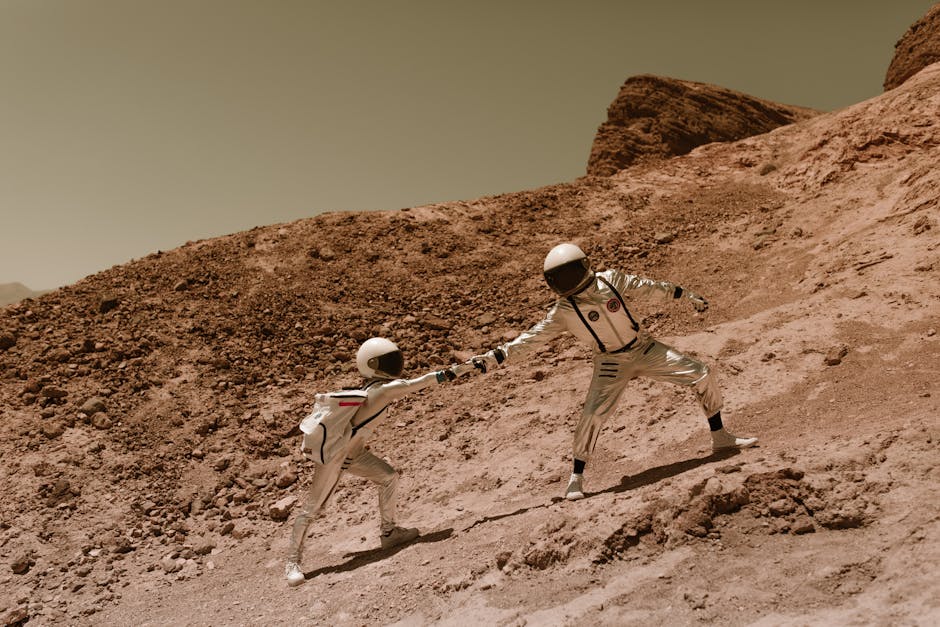A primary obstacle lies in the sheer distance to suitable candidates. Even our nearest planetary neighbor, Mars, represents a journey lasting months, demanding robust life support systems capable of sustaining crews during prolonged space travel. The effects of prolonged exposure to microgravity, including bone density loss and muscle atrophy, pose significant health risks demanding mitigation strategies. Radiation, both from solar flares and galactic cosmic rays, presents another critical danger, requiring shielding solutions that are both effective and practical for spacecraft and habitats. Developing effective countermeasures to these physiological challenges is paramount for successful long-duration missions.
Beyond the transit challenges, planetary environments themselves present considerable difficulties. Mars, while seemingly the most accessible option, possesses a thin, frigid atmosphere offering minimal protection from radiation and lacking sufficient oxygen for respiration. Its surface is barren, devoid of liquid water readily accessible on the surface, and scarred by intense dust storms. Terraforming, the process of modifying a planet’s atmosphere and environment to make it habitable, remains a highly speculative endeavor, with significant scientific and engineering uncertainties. The energy requirements alone would be astronomical, demanding technologies far beyond our current capabilities.
Beyond Mars, other planetary bodies present unique challenges. The Galilean moons of Jupiter, such as Europa and Ganymede, harbor subsurface oceans potentially containing life, but accessing and utilizing these resources would necessitate drilling through kilometers of ice, a feat requiring substantial technological innovation. Venus, shrouded in a dense, scorching atmosphere with surface temperatures hot enough to melt lead, presents seemingly insurmountable obstacles. While its atmospheric pressure is high, offering some protection from radiation, extracting resources and creating a habitable environment would require herculean efforts and sophisticated technology far beyond what we possess today.
The selection of a suitable target for colonization also depends on the availability of resources. In-situ resource utilization (ISRU) is crucial for reducing the reliance on Earth-based supplies. This involves extracting and processing materials found on the planet, such as water ice for drinking water, oxygen production, and rocket propellant. Mars, for example, contains water ice in its polar caps and possibly subsurface deposits. However, extracting and refining these resources will require advanced robotic systems and robust chemical processes capable of operating autonomously in harsh conditions. The feasibility and efficiency of ISRU will significantly influence the economic viability and sustainability of any extraterrestrial settlement.
The psychological aspects of colonization are often overlooked. Living in confined spaces for extended periods, potentially with limited contact with loved ones on Earth, poses significant psychological challenges. Careful crew selection, training, and the design of living spaces that promote mental well-being are crucial to ensure crew safety and mission success. Addressing issues like social dynamics, conflict resolution, and maintaining morale in a remote and isolated environment requires thorough preparation and ongoing support.
Ethical considerations also arise. Should we colonize other planets if the process might harm existing extraterrestrial life, even microbial life? The potential for contamination of other celestial bodies with terrestrial organisms, and vice versa, necessitates stringent planetary protection protocols to prevent the disruption of potential ecosystems and the spread of diseases. Furthermore, the question of governance and resource allocation in a potential extraterrestrial colony demands thoughtful consideration to ensure fairness, sustainability, and the avoidance of exploitation.
In conclusion, human colonization of other planets is a profoundly ambitious goal, fraught with significant technical, biological, and ethical challenges. While the science fiction vision of self-sustaining colonies on other worlds might seem alluring, the reality is a complex interplay of scientific advancements, technological breakthroughs, and resource allocation. While a definitive answer to whether humans will ever colonize other planets remains elusive, the pursuit of this goal fuels innovation and pushes the boundaries of human knowledge and capability across various scientific disciplines. The journey towards extraterrestrial settlements will undoubtedly be long and arduous, but the potential rewards ensuring the survival and propagation of humanity beyond our fragile home planet make the endeavor worthy of continued exploration and research.
